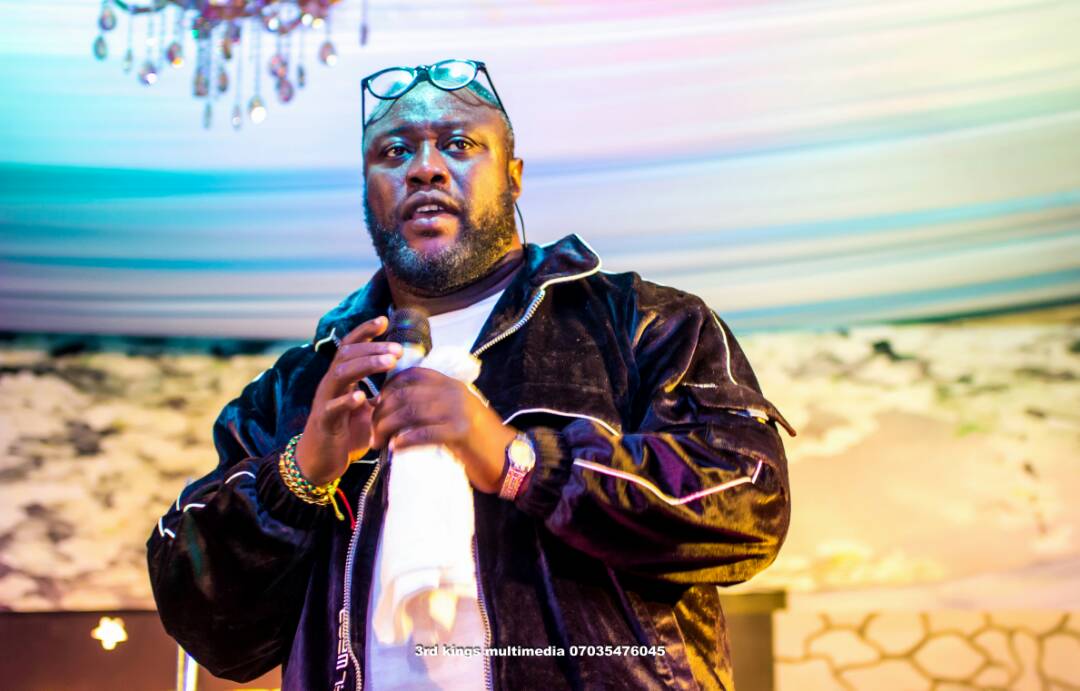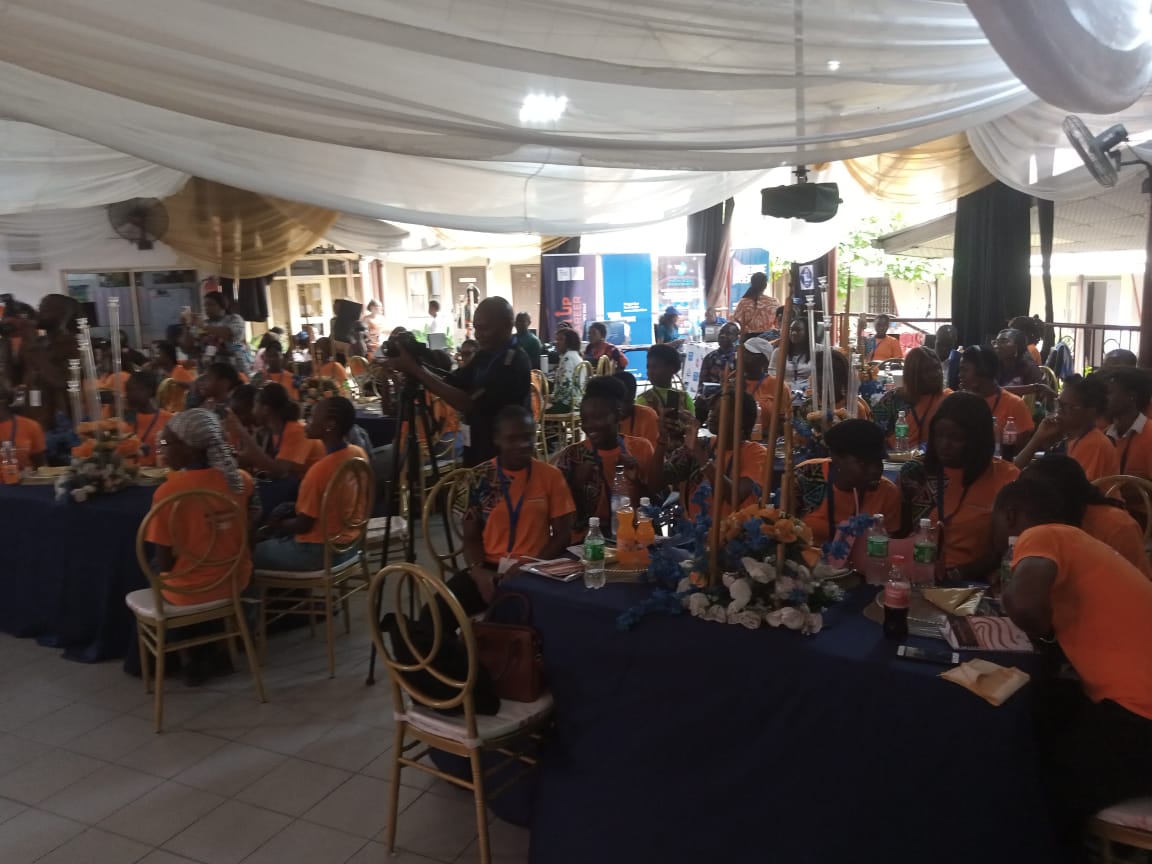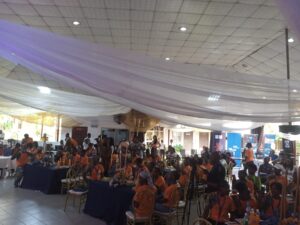Entertainment
Reminiscence Of Nigerian Highlife Kings .The Crave For Their Songs

Koredo
These are songs that bring
back that longing sense of nostalgia that makes you crave for a Nigeria before the Civil War. Thanks to these kings of highlife music even the young generation can listen to it and are on the music playlists of a lot of Nigerian weddings home and abroad.
Highlife is life! Meet our African Kings of highlife music. Enjoy!
10. Celestine Ukwu
Celestine Obiakor was born in 1940, Efik, Onitisha, Nigeria. Celestine was a hit back then and was on the verge of a national breakthrough when the Nigerian Civil War brought touring and recording to a grinding halt. He re-emerged in 1970 with Philosopher’s stone.
He released his biggest hit money palaver in 1976. He died later the same year.
9. Sunny Okosun
Sunny Okosun born in January 1, 1947 in Enugu, Sunny who was from Edo State was one of the leading Nigeiran musicians from the late 1970s to mid 1980s.
He formed his first band. The postmen, in Enugu in 1965 and joined Melody Maestros, a band led by Victor Uwaifo in 1965. From 1972 to 1974 he led a group known as Paperback Limited and then formed a newband, Ozziddi.
Some of his popular songs are Fire in Soweto, High life and Which Way Nigeria. Okosun continued his career in music as a gospel musician in the early 90s.
He died aged 61 of Colon Cancer on 24 May 2008.
8. Tunji Oyelana
A former lecturer, Tunji Oyelana was born in October 4, 1939 and is credited with having sold the most albums by a Nigerian High Life musician.
He composed the song, I love my country with Nobel laureate Wole Soyinka. Both were charged with treason in 1996, and forced into exile by Sani Abacha, while touring internationally with Soyinka’s play the beatification of Area Boy.
7. Orlando Owoh
Originally born as Stephen Oladipupo Owomoyela in February 1932, in Osogbo, Orlando was a notable highlife musician and band leader. He was shifted from the carpentry trade in 1958, when he was hired by Kola Ogunmola Theatre Group to play drums and sing.
He went on to form Dr Orlando Owoh and his Omimah Band in 1960 and Dr Orlando Owoh and his Young Kenneries Band in 1975; and over a musical career of forty years became one of the leading proponents of highlife music. He had over 45 albums to his credit.
Some of his well known song include, Yellowe Sisi, Ajokodun bi ile, Ololufe gba temi, Omo Pupa and No friend/Aiye Lokun.
6. Prince Nico Mbarga
Prince Nico Mbarga was born to a Nigerian mother and a Cameroonian father in Abakaliki on January 1, 1950. He is renowned for his hit song Sweet Mother, recorded with his band Rocafil Jazz, as well as Aki Speical.
Prince Nico Mbarga’s style of Highlife is a mixture of Soukuos of the two Congos, Makossa of Cameroon, and of course the Guitar Highlife of Nigeria.
5. Jim Rex Lawson a.k.a Cardinal Rex
Cardinal Rex was born to parents of Igbo and Kalabari descent in 1935.
He played with Sammy Obot, Bobby Benson, Victor Olaiya Chris Ajilo, and other Ghanaian and Nigerian musicians and bands. With the majors band, they recorded the hits: So alateme, Yellow sisi, Gowon Special and Jolly Papa.
He’s renowned for hit songs like; Yellow Sisi, Love Mu Adure and Sawale. Sawale was remixed by Flavor to make the popular hit song, Nwa Baby (Ashawo).
4. Victor Olaiya
Victor Olaiya was born to a wealthy family on the 31st of December 1930, in Calabar, Cross River State, and is the 20th child of a family of 24. He hails from Ijesha-Ishu in Ekiti State.
In 1954 Olaiya formed his own band, the Cool Cats (later the All Star Band), playing popular highlife music. His band was chosen to play at the state ball when Queen Elizabeth II of the United Kingdom visited Nigeira in 1956 and later to play at the state balls when Nigeria got independence in 1960 and when Nigeria became a republic in 1963. On the latter occasion, Olaiya shared the stage with the American jazz musician, Louis Armstrong. During the Nigerian Civil War of 1967-70, Olaiya was given the rank of a lieutenant colonel (honorary) in the Nigerian army and his band played for the troops at various locations. The cool cats later travelled to the Congo to perform for United Nations troops.
3. Dr Sir Warrior
Christogonus Ezebuiro Obinnaa was born in 1947 in Imo State, the ultimate Dr Sir Warrior, was the leader of the Oriental Brothers International Band which was famous in the Nigerian Igbo highlife music scene for several decades.
He began performing at the age of 11, when he joined men’s choral group specialising in a music form known as Ese. By 16 he had achieved fame for his voice and performance of Ese music.
He introduced the Oyorima concept, which is an Igbo word that means a refined feeling of rhythmic movement and balance.
It is said that the Oriental Brothers played a very important spiritual role in keeping many Igbo sane as they were severely traumatised by the civil war.
2. Oliver De Coque
Popularly known as Oliver De Coque, Chief Dr Oliver Sunday Akanite was born on April 14, 1947 and hails from Ezi nifite in Anambra State. He recorded more than 73 albums to his credit making him the most popular High life king of Africa.
His music band group Ogene Sound Super of Africa, blended modern high life and traditional Igbo music. He started playing music at the age of 17 with Ekpili.
1.Chief Stephen Osita Osadebe
Born in March 1936, in Atani, a city in Anambra State, he came from a line of singers and dancers. His career spanned over 40 years and he has written over 500 songs, half of which were commercially released. His popular hits include: Osondi Owendi (meaning “one man’s meat is another man’s posion”. Nwannem Ebezina, Kedu America and Onuigbo.
Osita later died in St. Mary’s Hospital Waterbury, Connecticut on 11 May 2007.
Entertainment
World Music Day: Alliance Française Port Harcourt Showcases Talents

The Garden City of Rivers State Port Harcourt at the weekend joined other parts of the world to celebrate the World Music Day, 2025, as Alliance Française showcases talents.
The event which is internationally known as Fête de la musique was held at cultural hall of the Alliance Française was a remarkable concert with memorable experience.
The event brought together music lovers, students, Artistes and members of the community For an exciting evening live performances and cultural exchange.
The Tide Entertainment reports that the world Music Day, which was created 1982 in France by the then Minister of culture, Jack Lang, ‘ Fête de la Musique’ is now celebrated in more than 100 countries every 21st June, marking the first day of summer with free concerts and musical showcases in public spaces.
In Port Harcourt, the Alliance Française honoured the tradition by spotlighting four(4) emerging artistes offering a platform to young talents shaping the city’s contemporary scene.
The audience enjoyed an unforgettable moments as they were entertained by the powerful performances from Preach A, who is known for blending fitness culture with spoken words and rhythm.
Also, artiste Emmayany delivering a vibrant fusion of afrobeat and afro pop. A singer, song writer and a performing artiste with a distinct sound.
Others were Amarachy Uko, a sensational singer with passion for soul , R&B, pop music and afrobeat.
While DJ Prospel closed the night with an energetic DJ set that got the entire hall dancing.
Earlier, the Director, Alliance Française, Port Harcourt Mrs Marina Lacal high lighted the mission of the Alliance Française saying that the event was more than a concert.
According to her, the event was put together by the Alliance Française to promote cultural diversity and foster artistic expression by connecting a long standing French tradition with creativity of the local music scene, adding that the event offerers an avenue for dialogue between culture and generations.
She stated that the event is used to promote professional and bring amateur artistes to limelight via the platform of the Alliance Française which is aimed at promoting the French Language through cultural heritage.
She explained that the celebration is also a broader series of Fête de la musique activities organized by the 10 Alliance Française across Nigeria in sync with concerts held in France and around the world simultaneously.
She further noted that the occasion reaffirms the role of Alliance Française as a cultural bridge, one where French heritage meets the pulses of Nigerian youth.
It would be recalled that no fewer than 19 artistes applied to perform at the event in Port Harcourt, but only four got approval for appearance.
Entertainment
PMAN Set To Implement Performance Levy ‘Tomorrow

The Governor of the Performing Musicians Employer’s Association of Nigeria (PMAN), Rivers State chapter, Comrade Moses Mabadeje popularly known as Mozy B said that the body has announced plans to implement performance Levy on artistes in the state with effect from 21st June.
This was carried in a statement released to The Tide Entertainment, yesterday by the Deputy Governor of the association, Comrade Abiye Howells.
According to the Governor, the announcement was made by PMAN, the only governing body that regulates the music profession in Nigeria, as authorized by the Government of Nigeria, in line with the Trade Union Act.
He stated that those affected by the Levy include (Non members)bands, groups, Hotels, Bars, lounges, Event Centres, show organizers, promoters and other stakeholders hosting events which feature live music performances within the State.
However, the Levy does not apply to members of the Performing Musicians Employer’s Association of Nigeria. (PMAN).
Comrade Moses Mabadeje, explained that this drive is aimed at financing the association and supporting the welfare and interest of musicians as outlined in Article 8 of the PMAN constitution as amended (2023). Consequently, a PMAN task force has been set up to enforce and swing into action to effect this move.
He further said that event organizers, promoters and owners of event centers are expected to comply with this regulation as the Governor has urged stakeholders to collaborate with the association to ensure the successful implementation of the levy and the peaceful co-existence between PMAN and Stockholders.
Nancy Briggs
Entertainment
“French Up Your Career” PH, 2025 :Consul General Of France Harps On Proficiency In French

The Consul, General of France in Nigeria, Laurent Favier has encouraged French Learners to improve their skills on the language, as there are lots of opportunities up for grabs on the job market with fluency in French Language, saying that there are many other career paths which are often less well known to learners of French.
 Participants at the “French Up Your Career” event held in Port Harcourt.
Participants at the “French Up Your Career” event held in Port Harcourt.
Favier who disclosed this during the just concluded third edition of the seminar tagged “French Up Your Career” organized by Alliance
Française, Port Harcourt explained that learning French doesn’t mean adding a language to your resume. It rather provides learners with new opportunities. Irrespective of their area of interest, be it diplomatic and International relations, international development, translation and Interpretation or journalism.
According to the Consul General, it was important to create awareness for young Nigerians in Port Harcourt who desire to have better understanding of how been fluent in French can create diverse career opportunities for users of the languages in Nigeria and the world at large, emphasizing that proficiency in French could possibly make learner a bridge between Nigeria and fast-developing regions.
“You previously heard this morning about how you can improve your French skills. This afternoon you will discover how being fluent in French can provide a significant edge on the job market and lead to professional careers that you may not have even considered before,”
“This event comes at the right time, as it launches the celebration of the richness and diversity of French-speaking cultures, which will mobilize us for more than a month throughout Nigeria and alongside other French-speaking countries,” Favier added.
He further highlighted that French is spoken by over 300 million people across the world, saying that, it’s one of the official languages of the United Nations, the European Union, and the African Union.
“There are many neighbouring African countries to Nigeria ,who have French as one of their primary languages of communication including Cameroon, Chad, and the Democratic Republic of the Congo. So, what does this mean for you as students here in Nigeria?” He asked
“These sectors in which the French Embassy is often mobilized are the business and marketing field for example, as French is often the preferred language in many multinational companies, particularly those in the energy, oil and telecommunications sectors. I’m thinking as well in technology and IT,” he said
He noted that French-speaking countries in Africa are investing heavily in tech, innovation, and infrastructure, revealing that companies in Tech are looking for bilingual professionals to assist with software localization, customer support, and managing projects in French-speaking regions.
“The French embassy is not only mobilized to help learners discover promising sectors. We are also providing our support and expertise in
training teachers and optimizing university programs,” he summed up
Also, the linguistics cooperation attaché, French Embassy in Nigeria, Magaly Losange, who also gave a lecture at the seminar, in an interview with Newsmen said that the main purpose of the seminar was to be more informative and supportive to those who want to make a skill out of French Language,saying that as the linguistics cooperation attaché of the French Embassy it is her duty to promote French language through culture.
She cited traditional stereotypes as a major challenge affecting the growth and development of French in Nigeria, as school, teachers at the primary and secondary level in most cases teach French using the traditional way, where students learn French, but could not put words and grammar together as a skill for communicate.
“French is important. I don’t see French as colonization, l see French as a key to embrace globalization, l hope that learners will be inspired and ready to embrace the global village,” Losange said.
She however said that the French Embassy is working to ensure that equipments to facilitate the learning of French is put in place to enable learners improve their skills fast, which in two to three years learners should be able to communicate with French, advising learners to be intentional with learning the language, through social media and other workable devices to advance their skills for certification and better opportunities.
Highlight of the event which had about 250 participants in attendance was the eloquence award ceremony where students were awarded for their eloquence in French language by the Director, Alliance Française Port Harcourt, Mrs.Marina Lacal alongside the Linguistics cooperation attaché of the French Embassy in Nigeria, Magaly Losange.
After two edition of the seminar it was the turn of the Alliance Française, Port Harcourt to host the Third edition.
It would be recalled that the first edition of ” “French Up Your Career” event was organized at the Alliance Française Lagos on October 23, the second one at UNILAG on November 24, 2024 respectfully.

